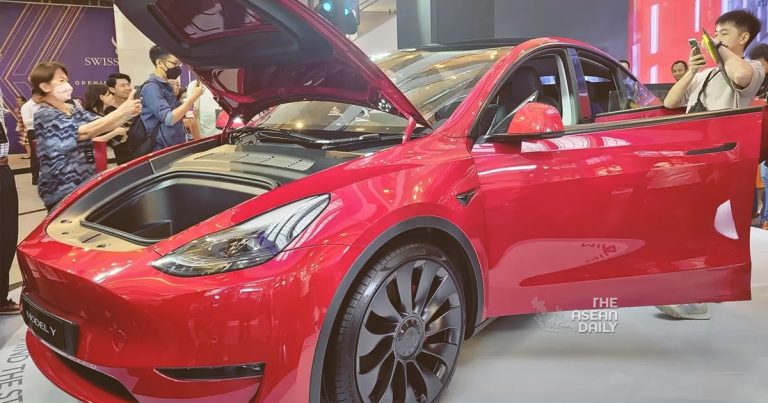11/8/2023 (KUALA LUMPUR) The decision by tech billionaire Elon Musk to choose Malaysia as the regional headquarters for Tesla’s electric vehicles serves as a strong signal that Prime Minister Anwar Ibrahim is committed to reforming the country’s long-entrenched business policies.
Tesla’s expansion into Malaysia came after intense competition from Indonesia, demonstrating the viability of Malaysia’s market. However, the terms negotiated between Mr. Musk and PM Anwar break significantly from precedent.
Typically, foreign ventures establishing in Malaysia must allocate a minimum 30% ownership to indigenous Malay groups. Additionally, imported vehicles face an opaque import licensing system called the Approved Permit (AP) regime which controls the entry of many goods.
However, for Tesla, neither constraint will apply – a major concession unveiling PM Anwar’s intentions to modernize Malaysia’s economic foundations. These protections have enriched politically connected conglomerates for decades, but distort the market and raise costs for citizens.
Economists argue this regime disadvantages Malaysia in attracting foreign capital so vital in today’s competitive landscape. Neighboring nations like Indonesia, Thailand and Vietnam increasingly threaten Malaysia’s status if meaningful changes are not made.
PM Anwar’s advisors assert overhauling import permits is key to lowering living expenses, the government’s top priority. However, vested interests will not give up power without resistance.
The licensing framework first aimed to promote Malay participation in vehicle distribution but devolved into a tool for political patronage. Reports emerged of permits sold illegally at exorbitant prices. Ranging from RM10,000 (US$2,180) and RM50,000 per vehicle.
Lobby group Pekema, representing importers, strongly defended the system, wielding influence as a core UMNO supporter. But with the former ruling party now diminished, PM Anwar sees opportunity for reform.
His administration faces crucial state polls this weekend where further electorate support could embolden bold pro-market moves. With Tesla blazing a trail, other global EV brands will expect equality, foreshadowing seismic change.
Malaysia’s large auto market makes the conditions ripe for change. Even if short-term protections remain, plunging permit values appear inevitable as competitive imports surge. A new era may soon dawn for this strategic industry and Malaysia’s economy.




